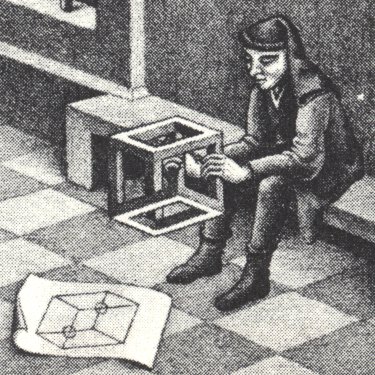Stony Brook UniversityMAT 118
|

|
 Index Index General Information General Information Teaching Staff, Office Hours Teaching Staff, Office Hours Syllabus and Schedule Syllabus and Schedule Homework Homework |
|---|
Stony Brook UniversityMAT 118
|

|
 Index Index General Information General Information Teaching Staff, Office Hours Teaching Staff, Office Hours Syllabus and Schedule Syllabus and Schedule Homework Homework |
|---|
MAT 118 is an introduction to several exciting mathematical topics outside Calculus, accessible with high school skills. There is much more to mathematics than just calculations and solving equations. Although the course is primarily taken by students who need a semester of mathematics to satisfy the DEC "C" requirement, there have traditionally been many others (including science majors) who are enjoying the material presented. Topics will be selected from among the following - voting methods; the mathematics of money; probability; graphs and networks; tilings and polyhedra; number theory. There is an emphasis on problem solving. (3 credits)
We remind everyone of the basic entry level course options offered by this Department:
Prerequisites: Equivalent of MAP 103 or level 2+ on the mathematics placement examination (MPE), or permission of the instructor.
Text: George Gilbert, Rhonda Hatcher: Mathematics - Beyond the Numbers, John Wiley & Sons (2000).
The course will cover material from Chapters 1,3,4,6,7,8. Textbooks are intended to be read. Study the assigned sections before the lecture! This will greatly increase your comprehension and enable you to ask thoughtful questions in class. Furthermore, the lecturers and recitation instructors will not always be able to cover all details for which you may be responsible.
Internet Access: Internet access using a web browser is essential. Announcements concerning MAT 118 such as lecture topics, homework assignments, and your grade report will be found on our course pages web site, as well as links to supplementary material such as review guides.
Examinations: There will be two midterm tests, 80 minutes each, both given in class - no makeups and a two hour Final. If one midterm is missed because of a serious (documented) illness or emergency, the semester grade will be determined based on the balance of the work in the course. The examinations are scheduled as follows:
Midterm I:
Tuesday, February 27,
in class Midterm II:
Thursday, March 29,
in class Final Exam:
Tuesday, May 15,
5:00-7:30 PM
Homework: You cannot learn Mathematics without doing mathematics. It is essential to actively take part in the recitation and to solve problems: For each week problems are assigned on the homework page (usually several sets in advance). Work all of the assigned problems. Solutions should be written neatly and clearly. Problems that ask you to "explain" or "describe" should be answered with complete English sentences. Submit your solutions to your recitation instructor, normally at the recitation meeting of the following week. Homework will be graded, returned, and discussed. It is also recommended that you look at additional problems in the text to increase your understanding. If you do not see how to solve a certain problem after some effort, get help from your recitation instructor, your lecturer, your classmates, or from tutors in the Math Learning Center. You are encouraged to study and discuss homework with others from the class, but you must write your solutions of all problems for credit yourself. Late homework will generally not be accepted.
Grading: Your course grade in MAT 118 will be determined by the following components:
Recitation:
30% Midterm Exam I:
20% Midterm Exam II:
20% Final Exam:
30%
Incompletes will be granted only if documented circumstances beyond your control prevent you from completing the course work, according to strict University rules.
Calculators: We highly recommend that students in this course have a scientific or graphing calculator in lectures and recitation sections, on homework and on examinations - although you may get by without one. Such a device is a good investment also for non-scientists, and this course offers the opportunity to learn how to use some more advanced calculator features that have become standard tools in the modern world. Popular choices are the Texas Instruments TI-82/83/85/86 and the Sharp EL-9300/9600 models. Note that it is Department policy that calculators implementing computer algebra, such as the TI-89, may not be used in examinations.
Math Learning Center: The Math Learning Center (MLC), located in Room S-240A in the Physics Building, is an important resource. It is staffed most days and some evenings by mathematics tutors (faculty and advanced students); your recitation instructor will hold at least one office hour there. For more information and a schedule, consult the MLC web site.
Special needs.
If you have a physical, psychological, medical or learning disability that may impact your course work, please contact Disability Support Services, ECC (Educational Communications Center) Building, Room 128, (631) 632-6748. They will determine with you what accommodations are necessary and appropriate. All information and documentation is confidential. Arrangements should be made early in the semester (before the first exam) so that accomodations can be made in time.
Students requiring emergency evacuation are encouraged to discuss their needs with their professors and Disability Support Services. For procedures and information, go to the following web site:
http://ws.ccstonybrook.edu/ehs/fire/disabilities.shtml